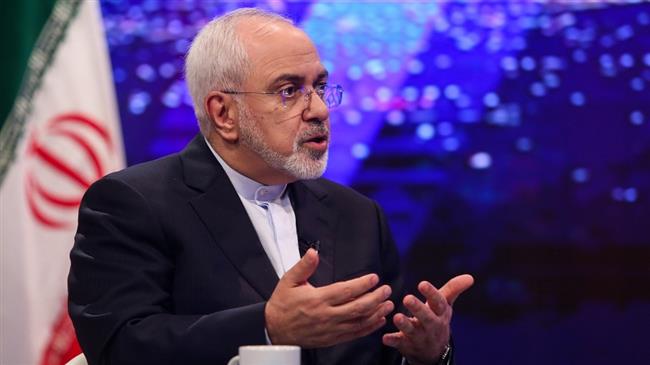FM Zarif urges Trump to base US foreign policy on facts not Fox News headlines
Iran's Foreign Minister Mohammed Javad Zarif has called on US President Donald Trump to base his foreign policy approach on "facts" rather than the headlines featured in pro-Republican Fox News TV channel.

In a post on his Twitter account on Sunday, Zarif said Trump “is better advised to base his foreign policy comments & decisions on facts, rather than @FoxNews headlines or his Farsi translators.”
It came after Trump rejected the possibility of talks with Iran following Zarif’s interview with German magazine Der Spiegel, where he said Tehran is open to negotiations with Washington on the condition that all sanctions are lifted.
Trump took to Twitter on Saturday and wrote in both English and Persian languages that “Iranian Foreign Minister says Iran wants to negotiate with The United States, but wants sanctions removed. @FoxNews @OANN No Thanks!”
In his Sunday tweet, the top Iranian diplomat posted an excerpt from his Friday interview with Der Spiegel, where he was asked about the possibility of negotiations following the US assassination of Iran’s prominent anti-terror commander General Qassem Soleimani.
He replied that the Trump administration could lift the sanctions, which it had reimposed on Iran after scrapping the Joint Comprehensive Plan of Action (JCPOA), and then come back to the negotiating table.
“No, I never rule out the possibility that people will change their approach and recognize the realities. For us, it doesn’t matter who is sitting in the White House. What matters is how they behave,” Zarif said.
“The Trump administration can correct its past, lift the sanctions and come back to the negotiating table. We’re still at the negotiating table. They’re the ones who left. The U.S. has inflicted great harm on the Iranian people. The day will come when they will have to compensate for that. We have a lot of patience.”
The JCPOA was signed between Iran and six world states — namely the US, Germany, France, Britain, Russia and China — in 2015. It was also ratified in the form of a UN Security Council resolution.
However, Washington’s unilateral withdrawal in May 2018 and subsequent reimposition of anti-Iran sanctions left the future of the nuclear deal in limbo.
Tehran remained fully compliant with the JCPOA for an entire year, waiting for the co-signatories to fulfill their end of the bargain by offsetting the impacts of Washington’s bans on the Iranian economy.
As the European parties failed to do so, Tehran moved in May 2019 to suspend parts of its commitments under Articles 26 and 36 of the deal covering Tehran’s legal rights.
Iran took its fifth and final commitment reduction step earlier this month.







